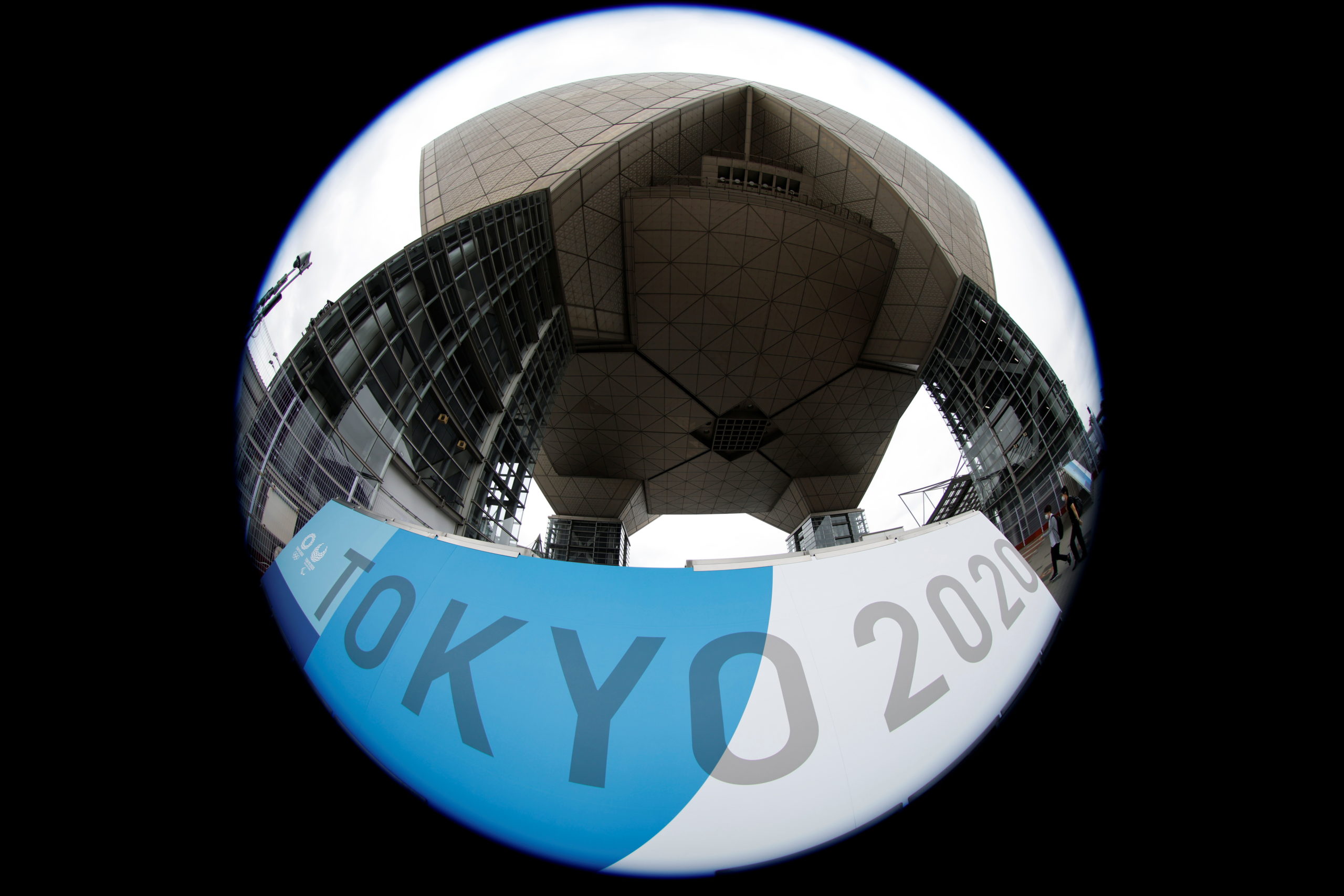
FILE PHOTO: People walk past a sign for the 2020 Tokyo Olympic Games that have been postponed to 2021, at the IBC/MPC media center at Tokyo Big Sight exhibition center in Tokyo, Japan June 30, 2021. REUTERS/Fabrizio Bensch
Fans are likely to be banned from the Tokyo 2020 opening ceremony over virus fears, but a reduced number of VIPs and Olympic officials will be able to attend, a Japanese newspaper reported.
International Olympic Committee (IOC) representatives, foreign dignitaries, sponsors and others connected to the Games will be allowed into the National Stadium to watch the July 23 ceremony, the Asahi Shimbun newspaper said late on Monday.
But under plans currently being discussed, fans would be locked out as organisers rethink attendance limits, as concern grows over rising virus cases in Tokyo.
The report, which cited several unnamed government sources, said organisers are working to whittle down the expected 10,000 “Olympic family” members to a level the Japanese public would find acceptable.
“Some people in government are concerned that the public won’t accept them being given special treatment,” it said.
“They’d like the number of people attending to be reduced to the hundreds.”
Games organizers last month set a limit of 10,000 domestic fans, or half of each venue’s capacity. Overseas fans have already been barred.
But a rise in infections has forced a rethink, with Games president Seiko Hashimoto recently warning that a closed-door Olympics remains an option.
The government is this week expected to extend anti-virus measures in Tokyo and elsewhere, with a decision on Olympic fans to follow.
Organizers were considering banning spectators from events in larger venues and in the evening, said the newspaper.
The announcement of the results of a ticket lottery for oversubscribed events has been pushed back to Saturday — less than two weeks before the opening ceremony.
Japan’s COVID-19 outbreak has not been as severe as in some countries, with around 14,800 deaths, but experts say another wave could stretch medical services as the Olympics begin.
The Olympic torch is due to arrive in Tokyo on Friday, but there will be no relay on public roads in the capital this weekend, organizers said, with short fan-free ceremonies planned instead.
Several legs of the torch relay, which began in March, have been taken away from public roads to prevent crowds from gathering.